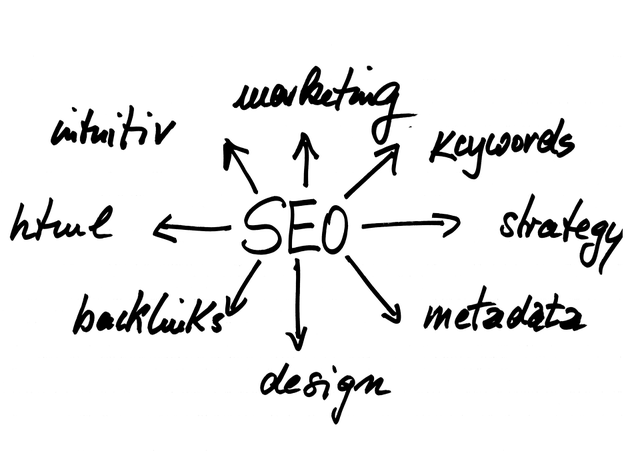A Comprehensive SEO Audit is a critical process for optimizing website performance and visibility. It involves in-depth analysis of keyword research, on-page optimization, technical SEO issues, competitor analysis, and content strategy. By identifying areas for improvement, such as meta tags, keyword usage, site speed, and backlink profile, these audits enhance search engine rankings and user engagement. Regular Comprehensive SEO Audits are essential for tracking success, refining strategies, and staying ahead of algorithm updates. They play a vital role in local SEO, ensuring businesses rank highly in regional searches. Ultimately, they drive better conversion rates, boost online presence, and foster business growth in today's digital landscape.
In today’s digital landscape, a robust online presence is non-negotiable. Understanding comprehensive SEO Audits is key to unlocking your website’s full potential. This in-depth analysis goes beyond surface-level optimization, delving into every facet of your site’s performance. From keyword research and on-page optimization to technical SEO, link building, content strategy, and local market penetration—each element is scrutinized for maximum impact. By leveraging these insights, businesses can stay ahead of the curve in a competitive digital arena.
Understanding Comprehensive SEO Audits: A Deep Dive

The Role of Keyword Research in SEO Analysis

Keyword research is a cornerstone of any successful Comprehensive SEO Audit. It involves meticulous investigation into user search behavior, market trends, and competitive analysis to identify relevant keywords that drive organic traffic and improve online visibility. By employing advanced tools and techniques, marketers can uncover valuable insights such as search volume, keyword difficulty, and long-tail keyword opportunities. These insights are instrumental in optimizing content strategies, refining website structures, and enhancing overall digital presence.
Effective keyword research translates into robust SEO strategies by ensuring that websites align with user intent. It helps in creating relevant, high-quality content that targets specific keywords, thereby increasing the likelihood of ranking higher on search engine results pages (SERPs). This process is crucial for attracting the right audience and driving meaningful engagement, ultimately contributing to improved conversion rates and business growth.
On-Page Optimization: Unlocking Website Potential

Comprehensive SEO audits are a crucial step in unlocking the full potential of any website. These in-depth analyses go beyond surface-level inspection, delving into every aspect of a site’s technical and content structure. By meticulously examining elements like meta tags, header usage, keyword optimization, and internal linking, these audits identify areas where improvements can significantly boost search engine rankings. On-page optimization is where the magic happens—it’s about ensuring each page on your website is tailored for both users and search engines, providing a seamless experience that encourages visitors to stay, engage, and convert.
Effective on-page optimization strategies include optimizing title tags and meta descriptions for relevant keywords, creating high-quality, unique content that answers user queries, and structuring pages with a clear hierarchy using headers and subheaders. Additionally, optimizing images, improving site speed, and ensuring mobile responsiveness are vital components of on-page SEO that contribute to better crawlability and enhanced user satisfaction.
Technical SEO: Ensuring Seamless User Experience

Technical SEO plays a pivotal role in enhancing user experience and search engine optimization (SEO) rankings. A comprehensive SEO audit is essential to identifying and rectifying technical issues that may hinder website accessibility, crawlability, and indexing. These problems can include broken links, slow loading times, mobile usability concerns, and structure or organization challenges. By addressing these issues, websites become more user-friendly, encouraging longer visits and lower bounce rates—key factors favored by both users and search engines.
Moreover, Technical SEO ensures that search engine crawlers can efficiently navigate and understand the website’s content. Well-optimized technical aspects facilitate seamless crawling, indexing, and ranking processes, ultimately improving a site’s visibility in search results. Regularly conducting comprehensive SEO audits allows for proactive management of these technical elements, contributing to better online performance and a stronger digital footprint over time.
Analyzing Backlinks: Building Quality Connections

In-depth SEO analysis involves a thorough scrutiny of a website’s online presence, and one crucial aspect is backlinks. These are incoming links from other websites that direct users to yours. A comprehensive SEO audit should evaluate both the quantity and quality of these connections. High-quality backlinks from reputable sources carry significant weight in search engine rankings because they signify trust and authority.
Building a robust backlink profile requires strategic efforts. It involves identifying relevant, high-authority websites within your niche and reaching out for link opportunities. Guest blogging, collaborations, and creating shareable content can all contribute to earning these valuable links. A comprehensive SEO audit should also consider the anchor text used in backlinks, ensuring it aligns with your website’s themes and avoids over-optimization.
Content Strategy: Creating Engaging, Optimized Content

In the realm of digital marketing, a robust content strategy is a cornerstone of successful SEO. Creating engaging content optimized for search engines involves careful planning and execution. It begins with understanding your target audience’s needs and preferences, translating into relevant, high-quality topics that resonate with them. A comprehensive SEO audit should scrutinize existing content to identify gaps and opportunities for improvement, ensuring it aligns with current search trends and algorithm updates.
Developing a consistent content creation process involves setting clear goals, conducting thorough keyword research, and integrating these keywords naturally into compelling narratives. This strategy extends beyond mere keyword stuffing; it’s about crafting pieces that inform, entertain, or solve problems for your audience. Regularly updating content to keep it fresh and relevant is also key, as search engines favor dynamic websites with consistently valuable content.
Performance Metrics: Tracking SEO Success

Performance Metrics play a pivotal role in tracking and measuring the success of your SEO strategies. These metrics provide valuable insights into how effectively your website is optimized for search engines, helping you identify areas that need improvement or those excelling beyond expectations. Key performance indicators (KPIs) often include organic traffic growth, keyword rankings, bounce rate, time on page, and conversion rates.
Comprehensive SEO Audits are essential tools to gather these performance metrics. They involve a thorough examination of your website’s technical health, content quality, and on-page optimization elements. By analyzing these data points, you can make informed decisions to refine your SEO approach, ultimately driving better search engine rankings, increased visibility, and improved user engagement.
Local SEO: Capturing Geographical Market

Local SEO is a crucial component of any comprehensive SEO strategy, especially for businesses targeting specific geographical markets. It involves optimizing online presence to attract local customers and rank higher in regional search queries. By focusing on location-based keywords and implementing strategies tailored to the area’s demographics, businesses can capture a significant share of the local market.
A detailed analysis using Comprehensive SEO Audits is essential to identify areas for improvement. This process evaluates local listings’ accuracy and consistency across various platforms, ensuring they align with Google’s Local Search criteria. It also scrutinizes website content, including location-specific keywords, to enhance relevance for local customers. Additionally, it involves examining off-page factors like online reviews and local business associations to build a robust local presence.
Staying Ahead: Regular SEO Audits and Future Trends

In today’s digital landscape, staying ahead in search engine optimization (SEO) is paramount for online success. A key strategy to achieve this is through regular Comprehensive SEO Audits. These audits are not one-time events but ongoing processes that allow businesses to identify and rectify any issues hindering their online visibility. By meticulously analyzing website content, technical aspects, keyword usage, backlinks, and user experience, comprehensive audits provide a holistic view of a site’s SEO health. This proactive approach enables marketers to make data-driven decisions, optimize for new algorithms, and outpace competitors.
Looking ahead, the SEO landscape is constantly evolving with emerging trends that demand businesses’ attention. Voice search optimization, mobile-first indexing, and E-A-T (Expertise, Authoritativeness, Trustworthiness) ranking factors are just a few examples. Staying informed about these trends and integrating them into regular audits ensures that websites remain optimized for the future. By adapting to these changes, businesses can enhance their online presence, capture a wider audience, and ultimately drive more organic traffic.
